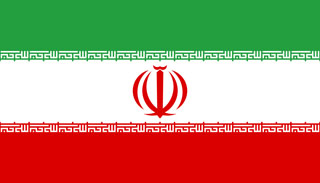
Home...
About us...
Legal status...
People...
Projects...
Search this site
...
Reviews...
Podcasts...
Publications...
Media...
Events...
Support our work...
About this site...
Privacy policy...
Contact us
You are here: Home > Publications > Does Iran pose a threat?

Game theorists are doing the calculus, claiming confrontation with Iran is all but inevitable. Israel, they say, might threaten a first strike nuclear attack, forcing the US to begin conventional military operations to avert an even more chilling scenario.
Temperatures are indeed rising and the Bush administration is losing patience in the face of Iran's determination to develop its nuclear capability, but there may still be a way to avert armed conflict and stabilise the region.
Admittedly things look grim. Iran is in a position to influence Shia militias in ways which could create unsustainable frictions in Iraq, and make America's position untenable. Conventional military strikes are by no means guaranteed to be successful. Given Iran's nuclear sites are scattered and thus resistant to attack, it looks as if satisfactory options are few.
It is well known that Iran has a terrorist network with the capability to attack American targets with potentially devastating effect. Indeed they have threatened to do so.
In the meantime energy supply is tight, with the cost of oil reaching a high of over $70 a barrel, the result, in part, of consumption growing more strongly than expected in both India and China. So as the world community twitches at the thought of yet another confrontation in this strategically and economically important region, is it a bad time to curb Iranian power? And if so, can we/ must we learn to live with the very real possibility that Iran may soon be a member of the the nuclear club?
The message being sent by Iran is mixed. In recent days Iranian officials have offered full and apparently thoughtful explanations of their position, stressing the protection of territorial integrity and civilian uses of their nuclear technology.
At the same time, President Ahmadinejad's comments to the international community remain resolute and characteristically inflammatory, not very dissimilar to his pronouncements last year, when he led the call for Israel to be wiped off the map.
The rhetoric has polarised the issues, with even the most respected commentators viewing the growing problem in terms of Iran versus America/ Israel. With this as the starting premise, the Europeans and Russian are cast as mere bystanders, doing their best to encourage the hot-headed protagonists to resolve their differences. This approach has made a genuine analysis difficult.
A brief review of Iran's recent activities and profile is essential to a fuller understanding of the issues involved.
Iran has established itself as the leader of the Muslim world, which arguably it sees as its destiny. And it is backing this up with dollars. It has just announced it will give some $50 million to the Palestinian Authority to fill the gap left by a withdrawal of Western aid. Iran is also one of the main donors to the reconstruction of Afghanistan, having pledged $560 million, all of which is expected to be in Afghan coffers before the end of this year.
Central Asia and the Caucasus are areas to which Iran has natural cultural ties, and is developing an infrastructure to augment these. In 2005 a 125 km road link from Iran to Herat, Afghanistan (an ancient centre of Persian learning and art, and now a thriving export route for trade with Turkmenistan and Pakistan) was completed at the cost of 43 million dollars, and a rail link is now planned. Included amongst these massive infrastructure projects is a 1,000 km rail link joining central Asia to the Persian gulf.
Trade with Turkmenistan and Uzbekistan is growing, and it can be expected that influence will not be far behind. Both these former Soviet republics have large Muslim populations. Strong handed authoritarian rulers in both have kept a lid on militant Islamist movements, and Russia and China are concerned about the threats they pose to their security.
Iran has funded and supported known terrorist organisations, so can it really be trusted to exert a benign influence, or will it eventually seek to assert itself politically in the wider region?
Iran is not unaware of its natural gifts, it sits at the crossroads between Asia and Europe, atop the Straits of Hormuz, through which some 20 million barrels of oil pass daily. It has the world's second largest known natural gas reserves (second only to Russia), and is the world's third largest oil producer.
If Europe was transfixed by the fear of a unified Germany and the concentration of power that entailed, then it is hard to understand how the community of nations can fail both to recognise the threat Iran could pose to the balance of power in the region, and global energy security, and to speak with one voice to counter it.
Diplomatic efforts by Europe and Russia have not applied adequate pressure.
Ironically Iran's regional neighbours, those most in need of a stable supplier of energy, could also have the most to lose in the long term if the Islamic Republic becomes the dominant force in the region, and perhaps even a superpower.
A re-framing of the issues is essential, if long-term stability is the goal.
It can't be beyond our collective will to prevent a dangerous imbalance of power, but it will take concerted effort from the international community, and an appreciation that this is not simply an argument between the US and Iran. The stakeholders are many, and should speak with one voice. Russia and China have a responsibility to give strong support to America. It may be the only way of preventing a very damaging confrontation, or equally bad, the re-emergence of this problem in a more virulent form in the not too distant future.
Transatlantic & Caucasus Studies Institute is a working name of The Transatlantic Institute.
© The Transatlantic Institute 2004-2026. Registered charity number 1108682.